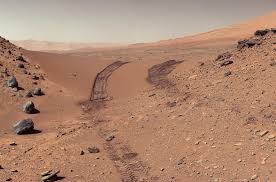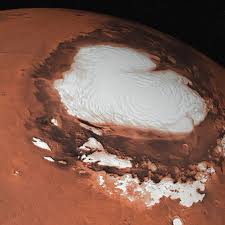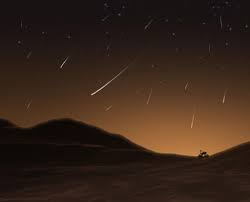MARS The Red Planet
Mars, the fourth planet from the Sun, is a terrestrial planet with a thin atmosphere, having surface features reminiscent both of the impact craters of the Moon and the valleys, deserts and polar ice caps of Earth.
Distance from Sun
227.9 Million km
Day Length
24.6 Earth hours
Surface Features

Martian Terrain
Vast plains and ancient impact craters

Polar Ice Caps
Frozen water and carbon dioxide

Martian Sky
Thin atmosphere creates unique sunsets
Atmosphere
Thin atmosphere composed primarily of carbon dioxide with traces of nitrogen and argon.
Climate
Cold desert climate with temperatures ranging from -195°F to 70°F (-125°C to 20°C).
Exploration
Home to multiple rovers and landers, with ongoing missions searching for signs of past life.
The Future of Mars
Mars represents humanity's next frontier. With its 24.6-hour day cycle and seasonal variations similar to Earth, it offers the most Earth-like environment in our solar system. Current missions are actively searching for signs of past microbial life and assessing the planet's potential for future human colonization.
The presence of water ice at the poles and possibly underground, combined with the planet's mineral resources, makes Mars a compelling target for establishing a sustainable human presence beyond Earth. Advanced terraforming concepts propose gradually thickening the atmosphere and warming the planet to make it more habitable.